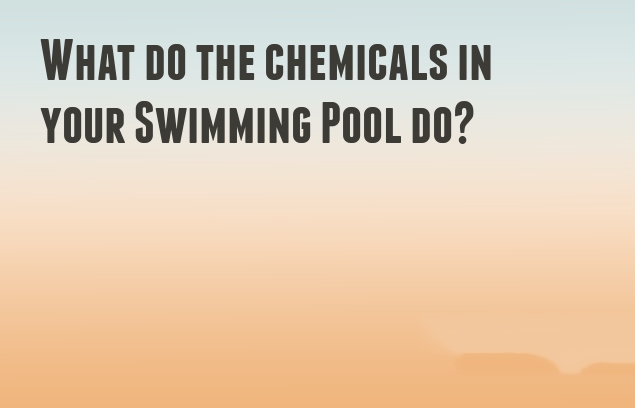
In maintaining a clean and safe pool, the chemicals used play various roles, including eliminating pathogens, balancing pH levels, and keeping the water clear and comfortable for swimmers. Here are some of the key types of pool chemicals and their functions:
Disinfectants: These are the primary defense against harmful microbes that enter the pool. Every swimmer can introduce anywhere from 1,000 to 1 million microbes into the water. Disinfectants like chlorine or bromine kill these pathogens and keep the pool safe. However, too much can irritate skin and eyes, while too little can allow harmful microbes to thrive. Therefore, the correct balance is essential.
pH Adjusters: pH levels determine whether your pool water is acidic (low pH) or basic (high pH). An imbalance can cause various problems such as irritating swimmers' skin and eyes, damaging pool equipment, or rendering disinfectants ineffective. pH adjusters, like muriatic acid or soda ash, are used to bring the pH level back to the ideal range of 7.2 to 7.6.
Algaecides: These chemicals prevent the growth of algae, which can make pool surfaces slippery and the water murky. Some algaecides target specific types of algae, so the appropriate choice depends on the specific algae problem in the pool.
Shock Treatments: These are high doses of chlorine or non-chlorine chemicals used to "shock" the water and quickly eliminate a buildup of contaminants. This is typically done periodically, such as weekly or after heavy bather loads.
Stabilizers: These chemicals, like cyanuric acid, help to protect chlorine from being destroyed by the sun's UV rays. This helps to extend the life of the chlorine in your pool, reducing the amount you need to add.
Clarifiers and Flocculants: These chemicals are used to clear cloudy water. They clump tiny particles together into larger ones which can be removed by the filtration system.
These pool chemicals work in conjunction to maintain the cleanliness, safety, and aesthetic appeal of your pool. Understanding their functions helps in maintaining proper pool care and avoiding potential problems. Remember, the trick to good pool care is "little and often!" Regular testing and adjustment of these chemicals is key to keeping your pool in the best possible condition.